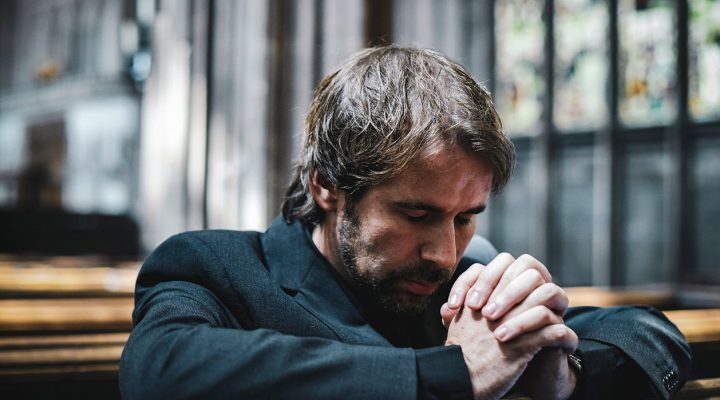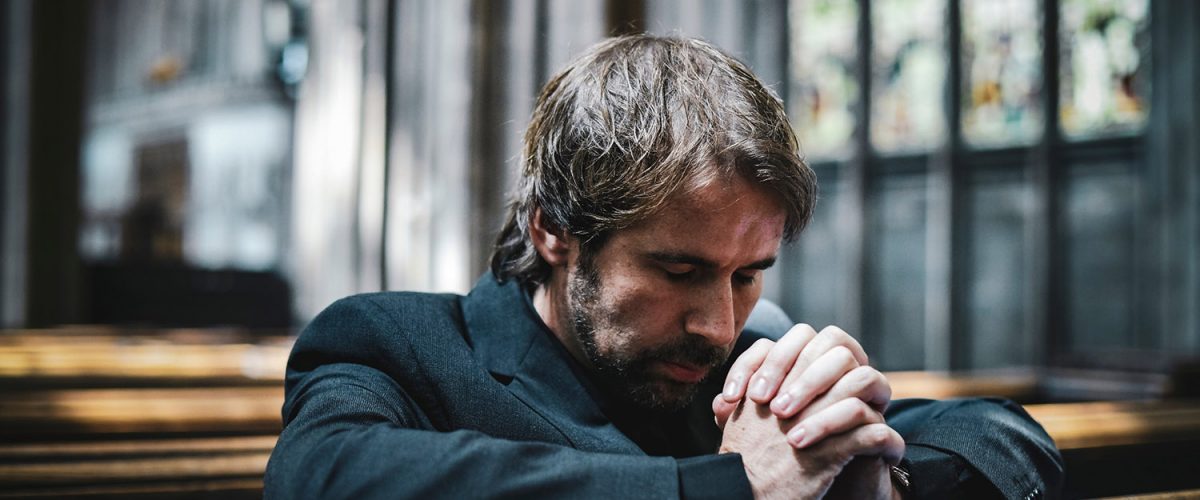“Now unto him that is able to keep you from falling, and to present you faultless before the presence of His glory with exceedingly joy, to the only wise God our Savior, be glory and majesty, dominion and power both now and forever. Amen” (Jude 1:24-25).
I awoke this Sunday morning with one singular ambition, to travel 50 miles via Uber to the sanctuary of a historic Anglican church that has made such a sublime and indelible impact on my spirituality in recent years. I also find great comfort reading through the Book of Common Prayer.
While I have often visited this Anglican church over the last decade or so, over the last couple of years it has increasingly become my proverbial “fortress of solitude” in the storms of my life.

Lee Enochs
Almost two years ago, I lost someone very close and dear to me and I have not found solace in the meager and superficial so-called “worship experiences” in many of the contemporary evangelical churches I have visited. I reached my fill of Cowboy churches led by male worship leaders who wear women’s skinny jeans. Sadly, these types of churches permeate the Southern Baptist Convention here in North Texas.
So, a few years ago in despondency, despair and utter disdain of the mundane and trite “rock and roll show” worship experience that has become commonplace throughout American evangelicalism, I returned back to the Anglican and “Reformation” church of my youth.
I am greatly thankful to theologian Mike Horton, professor of systematic theology at Westminster Theological Seminary in California, for introducing me to the Anglican Church and the doctrines of the Protestant Reformation more than 30 years ago.
Being from a “rock and roll” counter-cultural background myself, I did not fully appreciate everything Horton shared with me back in those formidable years. However, one thing that has stood out to me over all these years is that the God of the inspired, inerrant and authoritative Scriptures transcends human experience and is infinitely greater than humanity and its toys.
I would be exceedingly remiss not to mention that it was from Horton’s “Christians United for Reformation” meetings so many years ago that I first learned we are justified by God’s grace alone through faith in Jesus Christ alone based on the authority of Scripture alone for the glory of God alone.
After suffering a great tragedy in my personal life, I returned back to the doctrines and church of the Protestant Reformation. For in my hour of inconsolable sorrow and darkness, I returned back to Anglican church of my youth to pay homage to the King of Kings and Lord of Lords. Like the Prodigal Son mentioned in the Holy Gospels, I have, in great agony and affliction, returned back to the Reformed faith of John Calvin, Martin Luther and Thomas Cranmer.
“In my bitterness toward American fundamentalism, I went to Princeton and almost apostatized from the historic Christian faith.”
Up to this point, I have failed to confess that for several years I drifted far from evangelicalism when I studied for one of my master’s degrees at Princeton Theological Seminary. In my bitterness toward American fundamentalism, I went to Princeton and almost apostatized from the historic Christian faith. However, God has been merciful to this wayward son.
Tears stream down my face now as I recall how far I fell away from my evangelical Christian heritage. I am thankful for Robert George, professor of jurisprudence and director of the James Madison Program in American Ideas and Institutions at Princeton University for his erudite articulation of a faith-based conservatism when I was a student at Princeton Seminary.
I am also grateful for all my evangelical friends who did not forsake me and for pastors such as Jake Worley and Brent Christian of St. Andrews Anglican Church who have ministered to me recently. I am also greatly appreciative of evangelical theologians, such as Peter Lillback of Westminster Theological Seminary in Philadelphia, who at a very pivotal time in my studies at Princeton gave me reasons not to abandon my Christian faith.
At Princeton I drifted as far as a person could go from my evangelical heritage. Yet somehow in my lostness and rebellion, God did not forsake me. While it has taken me years and years to return back to the historic and Reformed faith, I have finally returned home.
God broke me and stripped everything from me I held dear to show me all the little secular idols I erected in my heart were “vanity and chasing after the wind.”
So today, I have returned to the Anglican Church of my youth. I have returned back to the doctrines of the Protestant Reformation. I am now an Anglican in Babylon, and a disciple of Jesus Christ in a world spiraling down to hell.
While I still see the light of God’s truth very dimly, in the Cross of Jesus Christ I see the profound majesty and mercy of God. I have returned back to Jesus Christ before it was too late.
Now, as I sit in this Anglican sanctuary, I see through the eyes of faith, the spiritual significance of the death, burial and resurrection of Jesus Christ, the greatest king the world has ever known. I am now determined not to know anything but Jesus Christ and him crucified. “For from him and through him and for him are all things.”
“Now unto the King eternal, immortal, the only wise God, be honor and glory for ever and ever” (1 Timothy 1:17).
Lee Enochs is a graduate of Princeton Theological Seminary, Southwestern Baptist Theological Seminary and Gateway Seminary. He is now studying Anglican theology at Reformed Episcopal Seminary and journalism at the University of North Texas. Lee’s podcast on American culture may be found here.


